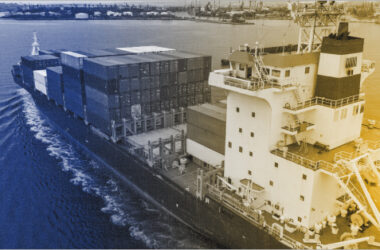Marine insurance is a type of insurance that provides coverage for marine vessels, cargo, and other related interests. It is designed to protect against the risks associated with shipping and transportation of goods over water. Marine insurance policies can be obtained by ship owners, cargo owners, and freight forwarders. These policies can be tailored to meet the specific needs of the insured and can cover a wide range of risks. In this article, we will have a comparative discussion about two distinct types of marine insurance, namely, valued and unvalued policies- two approaches that significantly impact the way insurers and policyholders assess and mitigate risks. As we will discover during this article, the choice between a valued Policy and an unvalued Policy becomes pivotal in determining the extent of coverage and the financial implications for all parties involved.
Before proceeding to what separates them, let’s first get to know what valued policies and unvalued policies are all about.
Valued Policy in Marine Insurance
A valued policy is a type of marine insurance policy where the value of the insured property is agreed upon by both the insurer and the insured at the time of policy inception. The agreed value is paid out in the event of a total loss, regardless of the actual value of the property at the time of loss.
Valued policies are commonly used in Marine Insurance for goods that are difficult to assess in terms of value or high-value items, such as antiques, works of art, or rare items. They are also used in cases where the value of the goods may fluctuate significantly over time, making it difficult to determine the actual value at the time of loss.
Advantages of a Valued Policy
Valued policies offer several advantages over unvalued policies in Marine Insurance. Firstly, they provide greater certainty and predictability in terms of the amount of compensation that will be paid out in the event of a loss. The insurer knows the maximum amount they will have to pay out in the event of a total loss, and the insured knows the minimum amount they will receive. This makes it easier for both parties to manage their risks and plan accordingly. This can be particularly important for high-value goods where even a small difference in value can result in a significant difference in compensation.
Secondly, valued policies can be easier to administer than unvalued policies. Since the value of the insured goods is agreed upon at the outset, there is no need for the insurer to conduct a detailed assessment of the value of the goods at the time of loss. This can save time and money for both parties.
Finally, valued policies can provide greater peace of mind for the insured. Knowing that they will receive a fixed amount of compensation in the event of a total loss can help them manage their risks and plan accordingly.
Unvalued Policy in Marine Insurance
An unvalued policy is a type of marine insurance policy where the value of the insured goods is not declared at the time of the policy’s issuance. Instead, the value of the goods is determined only after the occurrence of a loss. In other words, the value of the goods is not fixed at the time of the policy’s issuance but is left to be determined at the time of the loss. The insurer pays the actual loss suffered by the insured party, up to the maximum amount of coverage provided by the policy.
Unvalued policies are typically used for goods that are difficult to value accurately, such as perishable goods or goods that are subject to fluctuating market prices. As a result, unvalued policies are often used in the shipping industry, where the value of goods can be difficult to determine due to changing market conditions.
One of the key characteristics of an unvalued policy is that the insured is not required to declare the value of the goods at the time of the policy’s issuance. This can be advantageous for the insured, as it allows them to insure their goods without having to provide an accurate valuation.
Advantages of Unvalued Policy
One of the advantages of an unvalued policy is that it can be more flexible than a valued policy. Because the value of the goods is not fixed at the time of the policy’s issuance, the insured can insure their goods for a range of values, depending on the circumstances.
Another advantage of an unvalued policy is that it can be less expensive than a valued policy. Because the value of the goods is not fixed at the time of the policy’s issuance, the premium for an unvalued policy is typically lower than that of a valued policy.
Valued Policy vs Unvalued Policy in Marine Insurance: A Comparative Analysis
Assessment of Risk
One of the main differences between valued policy and unvalued policy in marine insurance is the way in which the risk is assessed. In a valued policy, the value of the insured goods is determined before the policy is issued, and this value is used to calculate the premium. This means that the insurer is aware of the exact value of the goods, and can provide coverage for this amount in the event of a loss.
On the other hand, in an unvalued policy, the value of the goods is not determined until after the loss has occurred. This means that the insurer is not aware of the exact value of the goods, and may not be able to provide full coverage in the event of a loss. As a result, unvalued policies are generally considered to be riskier than valued policies.
Claim Settlement Process
Another important difference between valued policy and unvalued policy in marine insurance is the claim settlement process. In a valued policy, the insured is entitled to receive the full value of the insured goods in the event of a total loss. This means that the insurer is required to pay the full value of the goods, regardless of the actual cost of the loss.
On the other hand, in an unvalued policy, the insured is only entitled to receive the actual cost of the loss. This means that the insurer is only required to pay the actual cost of the goods, and may not be required to pay the full value of the goods in the event of a total loss. As a result, the claim settlement process for unvalued policies can be more complex and time-consuming than for valued policies.
Premium Calculations
Finally, the way in which premiums are calculated is also different between valued policy and unvalued policy in marine insurance. In a valued policy, the premium is calculated based on the value of the insured goods. This means that the premium will be higher for goods with a higher value, and lower for goods with a lower value.
On the other hand, in an unvalued policy, the premium is calculated based on the estimated value of the goods. This means that the premium may be higher or lower than the actual value of the goods, depending on the accuracy of the estimate. As a result, unvalued policies may be more expensive than valued policies, particularly for goods with a high value.
Conclusion:
Shipowners and cargo owners should seek the advice of an experienced marine insurance broker or underwriter when selecting a policy. They should provide all relevant information about their vessel or cargo to ensure that the policy covers all risks. They should also review the policy carefully to ensure that it meets their specific needs.
Overall, choosing the right policy requires careful consideration of various factors. Shipowners and cargo owners must ensure that they have adequate coverage to protect their property in case of any loss or damage. By seeking the advice of an experienced marine insurance professional and maintaining good records, they can make informed decisions about their insurance needs.
Frequently Asked Questions (FAQs)
1. How can Shipowners and cargo owners choose the right marine policy for themselves?
Shipowners and cargo owners must consider various factors to ensure they have adequate coverage in case of any loss or damage to their property. One of the most important factors to consider is the type of policy. Marine insurance policies can either be valued or unvalued. A valued policy is one where the value of the insured property is agreed upon at the time of policy issuance. In contrast, an unvalued policy is one where the value of the property is not agreed upon and is left to be determined at the time of loss.
Another factor to consider is the scope of coverage. Shipowners and cargo owners must ensure that the policy covers all the risks associated with their particular situation. They must also consider the limits of coverage and any exclusions that may apply. The premium cost is also an important factor. Shipowners and cargo owners must balance the cost of the premium with the level of coverage they require. They must also consider any deductibles that may apply.
2.Which type of policy needs more documentation-valued or unvalued?
A valued policy typically requires less documentation, as the insured amount is predetermined and does not need to be proven in the event of a loss.
In contrast, an unvalued policy may require more documentation to establish the value of the property, including invoices, bills of lading, and other evidence of ownership and value. This can be a time-consuming process and may require the assistance of legal or financial experts.
3. How can the choice of valued or unvalued policy impact the financial security of the policyholders?
For policyholders, the type of marine insurance policy they choose can have significant implications for their financial security. A valued policy provides a guaranteed amount of compensation in the event of total loss, whereas an unvalued policy requires the insured to prove the value of the lost or damaged property.
In the case of a valued policy, policyholders can have greater peace of mind knowing that they will receive a predetermined sum in the event of a total loss. This can be particularly important for high-value cargo or vessels, where the potential loss could be substantial. However, it is important to note that a valued policy may also come with higher premiums to reflect the increased level of financial security provided.
On the other hand, an unvalued policy may be more cost-effective for policyholders who are willing to assume some of the risk themselves. In the event of a loss, the insured will need to provide evidence of the value of the property, which can be time-consuming and may require the assistance of an expert appraiser. However, if the value of the lost or damaged property is less than the insured amount, the policyholder may receive less compensation than they would have with a valued policy.








